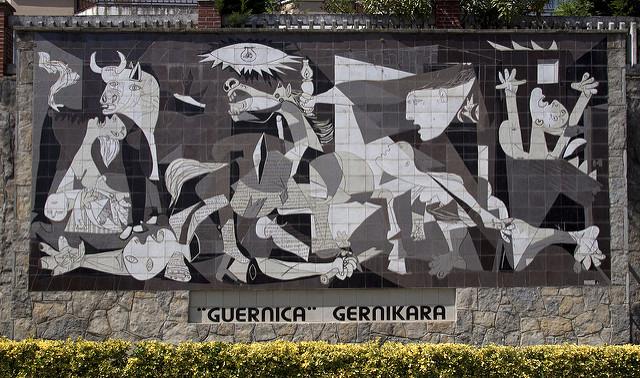 Monday was a public holiday across the country, providing Australians with some solemn space to reflect and give thanks for the contributions and sacrifices made by our defence force personnel. Lest we forget.
Monday was a public holiday across the country, providing Australians with some solemn space to reflect and give thanks for the contributions and sacrifices made by our defence force personnel. Lest we forget.Onto this week’s picks, Luhut Panjaitan, Indonesia’s security minister, recently announced a symposium to investigate the atrocities that took place in 1965–66 as then-General Suharto seized power, when more than half a million Indonesians accused of being Communists were massacred. The Economist has run an fine historical piece on the event, and considers the significance of the Jokowi administration’s moves to reopen old wounds. Human Rights Watch takes a look at one of the symposium’s key outcomes—documenting the location of mass graves—and how it has the propensity to incite anti-Communist sentiment, while Natalie Sambhi and Nadia Bulkin sat down to discuss Indonesia’s violent history and its transformation to nationalistic democracy in the latest CIMSEC podcast (42 mins).
This week in photography, Foreign Policy highlights snaps of the US–ROK military exercises that caused concern in Pyongyang; and a few weeks back, The Atlantic surveyed Chernobyl in advance of the 30 year commemoration last Tuesday.
The future of crime fighting was revealed at China’s Chongqing Hi-Tech Fair last week—and it won’t be messing around with reading you your Miranda warning. According to The People’s Daily, the 1.49m AnBot ‘will play an important role in enhancing the country’s anti-terrorism and anti-riot measures’ with a remote-controlled cattle-prod-like taser. And fight terror and crime it will—unless the lawbreaker ascends a flight of stairs. Then the AnBot is in trouble.
Hopefully this suggestion goes some way to soothing the near complete absence of art history here on The Strategist… One of Picasso’s most well-known and contentious works depicts the 1937 bombing of the Basque town of Guernica during the Spanish Civil War. This NYRB piece traces the war politics of the day, the painting of Guernica in 1939 and the art world politicking that followed.
Game of Thrones, the hit show which draws together bloody combat and bloodier politics, was back on screens stateside this week (though that seems not to have stopped Australian pirates). The Economist’s 1943 Magazine has a snappy piece for finance fiends which claims that the twists and turns of life in the Seven Kingdoms can be traced to economic health and international fiscal policy. And still in Westeros, the University of Connecticut’s Stephen Dyson has used the success he had teaching his students with drawing parallels between Westeros and real life to judge which beloved GoT characters most closely resemble the current line-up of presidential hopefuls.
Podcast
China watchers shouldn’t miss the chance to catch up with the happenings at a recent ANU event where some top thinkers from China and Australia dived into ideas around Chinese power, influence, capabilities and intended contributions to international security (1 hour 40 mins).
Videos
Australia’s 25th Prime Minister, the Hon John Howard OM AC, popped up in Queensland last week to deliver the Griffith Asia Institute’s inaugural Asia Lecture (1 hour).
Straight outta Syria and Iraq, these two videos to provide a glimpse into the fighting reality as Western military units battle Islamic State. A clip from France 24 shows US special forces acting in an observation role as they assist the Syrian Democratic Forces as they battle for the town of Shadadi in February (21 mins). (Check out this analysis of the kit carried by the US troops in the video.) On the other side of the coin, VICE News got their hands on headcam footage (7 mins) taken by an IS militant who died fighting the Peshmerga in northern Iraq in March. The vid ‘shows chaos, panic, and the fighters retreating’—disarray we don’t see in official IS propaganda.
Charlie Rose’s discussion with David Cohen—the deputy director of the CIA—is excellent viewing for the intel wonks out there. In the interview, Cohen touches on Syria, US intelligence collection practices and financial warfare. Watch it here (30 mins).
Events
Canberra: As part of its Power, Ethics and World Order Seminar Series, ANU’s Coral Bell School will host Professor Toni Erskine on 9 May for a discussion on the international community’s obligation to protect vulnerable people when their own governments are incapable of doing so, and which body or institution should be expected to make the big calls about the R2P doctrine. Register here.
Melbourne: At the AIIA’s Victoria headquarters, Tom Harley—joint managing director of Dragoman Global—will discuss how low oil prices will affect the future of Arabian Peninsula states, and how they might prepare for a ‘post-oil’ future. Mark your diaries for 5 May.